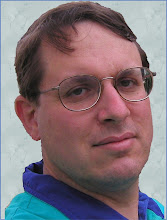During 1978, Dr. Bill (not his real name) had a reputation as being the worse surgical resident at the Thomas Jefferson University Hospital. Actually, he was a very bright young physician, as well as a careful, skilled surgeon. But the surgical residency in our university hospital was high-powered. All of the surgeons-in-training were very bright, and they lived, breathed, and slept surgery. The chief surgical resident even named his cat, “Stitch.” The surgical professors who taught those residents were exacting, perfectionistic, and totally intolerant of even the smallest mistake. Unfortunately for Dr. Bill, the other surgical residents were just a little more skilled than he. Consequently, Dr. Bill was frequently yelled at in the operating room.
Dr. Paul (also not his real name) was a surgeon from the suburbs who was asked by the patient to come to Jefferson University Hospital to remove the patient’s spleen. Maybe feeling a little put out, the house surgeons had Dr. Bill assist him. I was a third year medical student, and I scrubbed in to observe and assist.
What I observed is that Dr. Bill physically performed the surgery, from the first incision to the placement of the last suture. As the teacher, Dr. Paul told Dr. Bill what to do in small steps, giving him 5 to 10 instructions per minute. Under Dr. Paul’s clear direction and close supervision, Dr. Bill performed this difficult surgery in an careful, efficient, effective manner. I had never seen Dr. Bill do so well. In the end, Dr. Paul was satisfied and Dr. Bill was elated. I thought I saw him skip down the hall away from the surgical suite. And I learned what real medical teaching is all about.
Flash forward, thirty years later, and I’m an Assistant Clinical Professor, teaching third-year medical students at the Florida State University College of Medication. They are all brilliant, knowledgeable, enthusiastic, and compassionate, exactly what we want our future physicians to be. But the expectations are high and stress is intense, as they are given tests and compared to the other medical students across the nation. My observations of Dr. Paul’s surgery has shown me how to guide them through the skills they learn, step-by-step, so that when the skills come together, they can independently help the patients.
Copyright 2010, Henry A. Doenlen, M.D. All rights reserved.

No comments:
Post a Comment